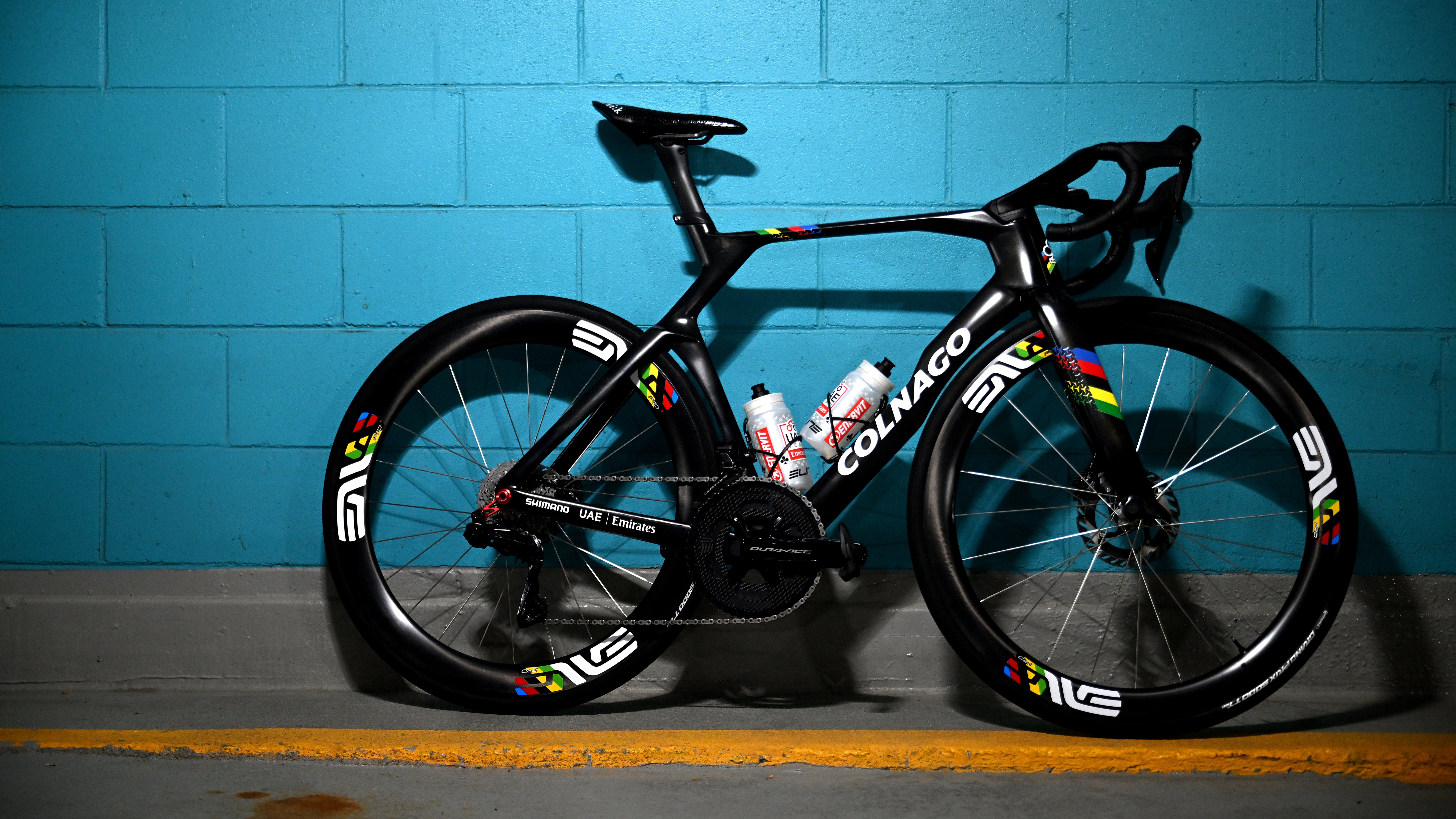Gilbert fails to defend Amstel Gold Race after Cauberg attack
BMC Racing leader takes tenth, worst result since 2010 in Dutch Classic
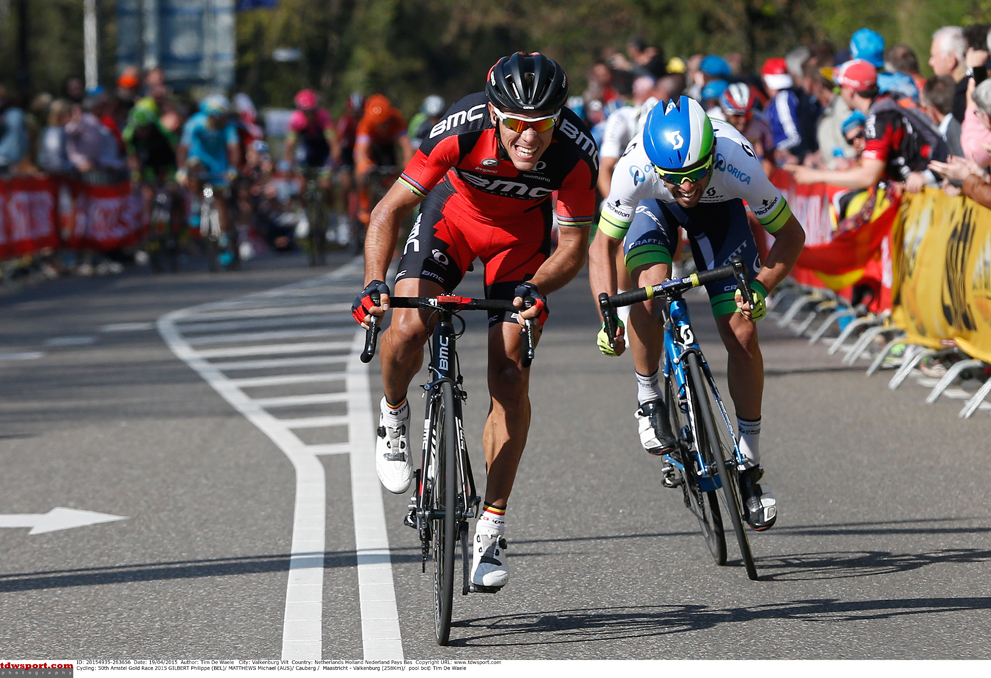
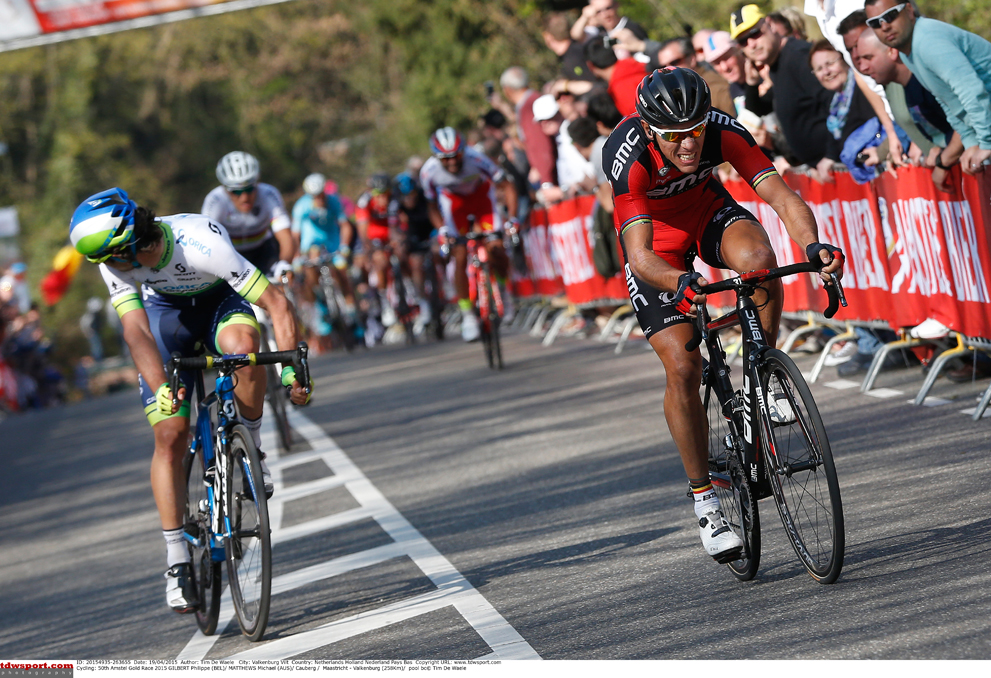
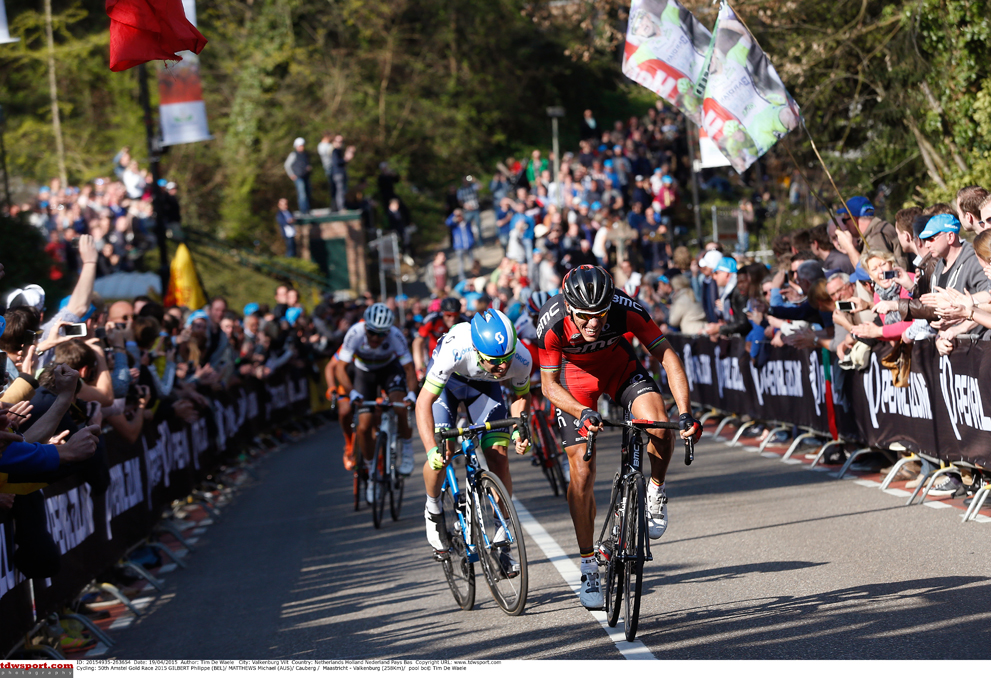
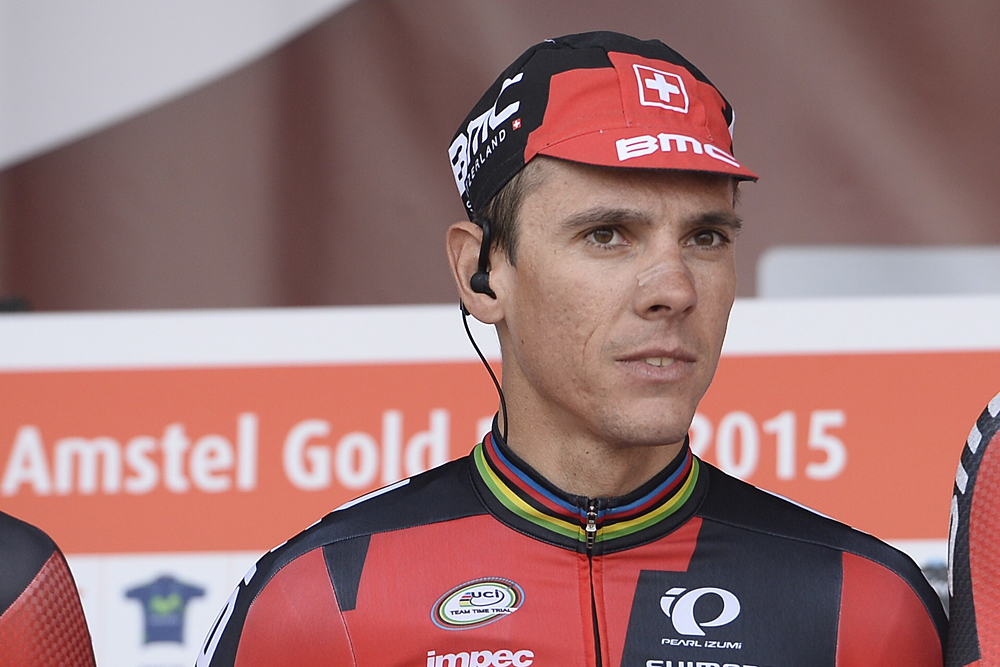
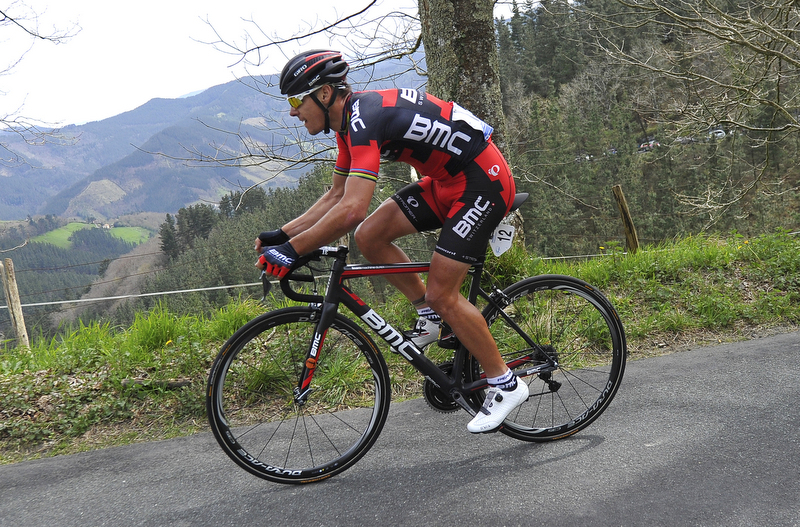
Less than three kilometres from the finish, Philippe Gilbert's searing attack on the Cauberg looked like a virtual replay of the move that had netted the Belgian his third Amstel Gold Race victory last April. But instead of another triumph, the BMC Racing leader was foiled in the very same scenario where he had seen off the opposition in such a commanding style twelve-months before.
Perhaps the biggest factor playing against the Belgian was that as his Spanish teammate Samuel Sanchez had warned him on Saturday, Gilbert's all but unbreakable status of top favourite meant it would be increasingly difficult to catch the peloton out on the Cauberg.
BMC Racing had done exactly that to superb effect in 2014, with Sanchez darting out of one side of the pack and unsettling Gilbert's rivals as they swarmed up the Cauberg. This year, as Belgian television reminded the public as the peloton sped down towards Valkenberg for the last time, too, "Gilbert's attacks will no longer surprise anyone."
One BMC rider, Brabantse Pijl winner, Ben Hermans, did make a longish drive a la Sanchez in 2014, but this time although it stretched the field, it was by no means an unexpected opening gambit. As a result, when Gilbert made his trademark attack, for all he was perfectly positioned and could open up some daylight, his move up the Cauberg was not the same kind of knockout blow it had been in 2014 - to the point where Matthews, despite a few wobbles, was all but glued to his back wheel.
Once the tide had turned, albeit slightly, against Gilbert, the setbacks came thick and fast. By the time Matthews had recovered enough on the sweeping and slightly uphill right hand bend that followed and started taking a turn, Valverde had already bridged across and joined the leading duo.
Then in no time at all along came more trouble for Gilbert as Kwiatkowski, sitting on Giampaolo Caruso's back wheel, came on board, as well and behind the Pole half a dozen more riders. By this point in the Amstel finale in 2014 Gilbert had been all but home: this time he was facing a mass of rivals with rising morale and in the finish he was swamped.
"I gave it everything but it was not easy, Matthews got back on, then Valverde came across, and then a bigger group, and then it was all over," Gilbert said afterwards in a huddle of Belgian journalists.
The latest race content, interviews, features, reviews and expert buying guides, direct to your inbox!
BMC had ridden a faultless race up to that point, he argued, shutting down breaks and keeping a tempo high so he could make his move on the Cauberg. Therefore, his real regret was that "I could not finish off the great work we had done up to then. We had a great team here and at the very least I wanted to get on the podium for them. My team's work deserved a win."
"It was a very important race for us, the team was very united, and with me as a three-times winner, we had a lot of responsibility for controlling the race and we did that well.
"The result though, wasn't the one we wanted." Tenth, in fact, is Gilbert's worst result in Amstel since his winning streak began in 2010, with the Belgian fifth in 2013 and sixth in 2012. But in any case, with such an amazing track record in Amstel Gold - second only in the record books to five-times winner Jan Raas - victory on the Cauberg is probably the only result that now counts for the BMC Racing leader.
Greg Van Avermaet, meanwhile, ended as BMC Racing's best finisher in fifth, but in a tumultuous final sprint, he was unable to give Gilbert much assistance. Already on the attack with Jakob Fuglsang (Astana) in the closing kilometres, Van Avermaet did not collaborate to try to stay away, but instead followed team orders. As BMC Racing director Valerio Piva argued, "we weren't going to change tactics at the last minute, our idea was to work for Gilbert."
As for the sprint, Van Avermaet pointed out, with BMC's two strongest riders in completely difference places in the peloton, he argued "There was no time (to talk with Gilbert) but I saw Hermans right before me."
"I immediately yelled at him to lead me out. I felt good, coming from the back, but I was in the wind too early. I had to go with 300 metres to go. With one extra man it would have been playable." By that point, in any case, for Gilbert it was game over.
Alasdair Fotheringham has been reporting on cycling since 1991. He has covered every Tour de France since 1992 bar one, as well as numerous other bike races of all shapes and sizes, ranging from the Olympic Games in 2008 to the now sadly defunct Subida a Urkiola hill climb in Spain. As well as working for Cyclingnews, he has also written for The Independent, The Guardian, ProCycling, The Express and Reuters.

